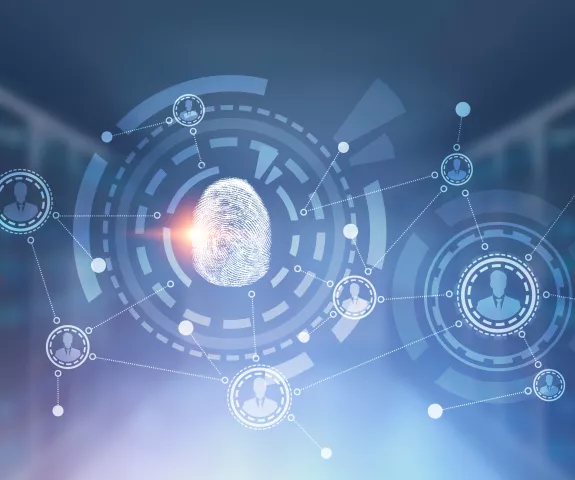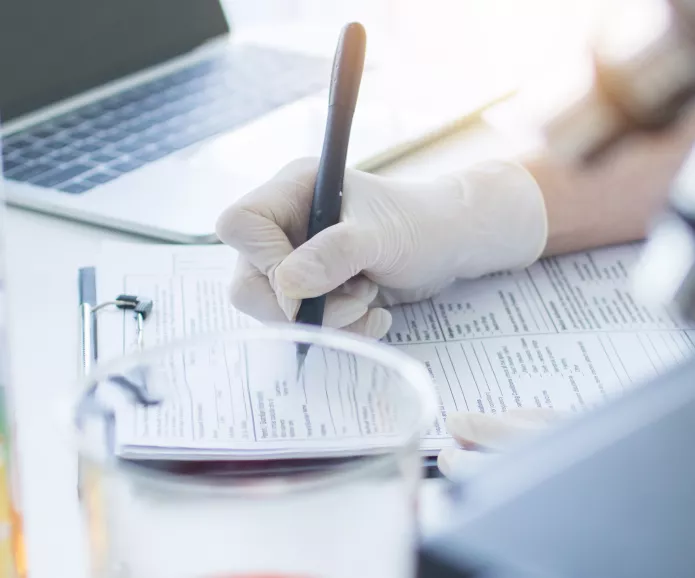
What is Forensic Science?
The word forensic comes from the Latin word forensis: public, to the forum or public discussion; argumentative, rhetorical, belonging to debate or discussion. A relevant, modern definition of forensic is: relating to, used in, or suitable to a court of law. Any science used for the purposes of the law is a forensic science. The forensic sciences are used around the world to resolve civil disputes, to justly enforce criminal laws and government regulations, and to protect public health. Forensic scientists may be involved anytime an objective, scientific analysis is needed to find the truth and to seek justice in a legal proceeding.
What Do Forensic Scientists Do?
What's a Forensic Scientist?
A forensic scientist is first a scientist. When a scientist's knowledge is used to help lawyers, juries, and judges understand the results of scientific tests, the scientist becomes a forensic scientist. Because the work of a forensic scientist is intended to be used in court and because scientific evidence can be very powerful, the forensic scientist must be accurate, methodical, detailed, and above all, unbiased.
Analyze Information and Document Findings
In most cases, the item or items in question are provided to the forensic scientist for examination and analysis. In other cases, they may need to go to the scene to conduct an on-site analysis, gather evidence, or document facts for later analysis. Having been provided or having gathered the relevant information, the forensic scientist then has to decide which examinations, tests, or analyses are appropriate – and relevant – to the issue(s) in dispute. (Is that powder cocaine or not? Did a defect in the road surface cause the crash?). They must conduct the most appropriate tests/analyses and document the process to interpret the results and document the steps followed to reach this conclusion or opinion.
Testify in Court as an Expert Witness
The forensic scientist will, at some point, have to testify. Testimony is the verbal statement of a witness, under oath, to the judge or jury. Forensic scientists are "expert" witnesses as opposed to ordinary or "fact" witnesses. Expert witnesses are permitted to testify not just about what the results of testing or analysis were ("facts"), but also to give an opinion about what those results mean. For example, a forensic scientist may testify about the observed, factual results of a chemical drug analysis and that, in their expert opinion, the results show that the tested substance is a specific drug, such as cocaine or heroin.
To qualify as an expert witness, the forensic scientist must have a solid, documented background of education, training, and experience in the scientific discipline used to conduct the examinations, testing, or analyses about which the forensic scientist wants to testify.
Being a member of the AAFS may assist in qualifying a forensic scientist as an expert witness.
Student Affiliate
Students must be enrolled in an undergraduate or graduate program that would support a forensic science career to be eligible.
This reduced barrier to entry is intended to encourage youth involvement in the field of forensic science, escalate career opportunities, and promote collaboration between the different generations of practitioners.
Learn about Student Membership
A party to a court case may challenge whether the scientist performed the tests correctly; whether the scientist interpreted the results accurately; or, whether the underlying science is valid and reliable. A party to a court case may additionally challenge whether the scientist is properly qualified to render an expert opinion or question the scientist's impartiality.
"If the law has made you a witness, remain a man of science. You have no victim to avenge, no guilty or innocent person to convict or save — you must bear testimony within the limits of science."
— Dr. P.C.H. Brouardel
19th-Century French Medico-Legalist

How do I Become a Forensic Scientist?
You will need:
- Bachelor's degree in science - (chemistry, biology, physics, etc.) Take other courses in math, statistics, and writing skills.
- Advanced degree – certain jobs require advanced degrees and specialized training.
- Good speaking skills – courses enhancing your public presence and speaking ability are highly recommended.
- Good note-taking and observation skills – take laboratory courses.
- The ability to write an understandable scientific report
- The ability to be unbiased, intellectual curiosity, and personal integrity

How Much Money Will I Make?
Income in the forensic sciences and average work weeks vary greatly depending on the type of job, the employer, and the work requirements. Most scientists in forensic laboratories work 40 hours per week. Others work in the field, some may be "on call," and their work hours may vary. Every branch of forensic science offers opportunity for personal growth, career advancement, and increased financial compensation.
The average salary of a forensic scientist is estimated to be between $40,000 and $100,000 a year.